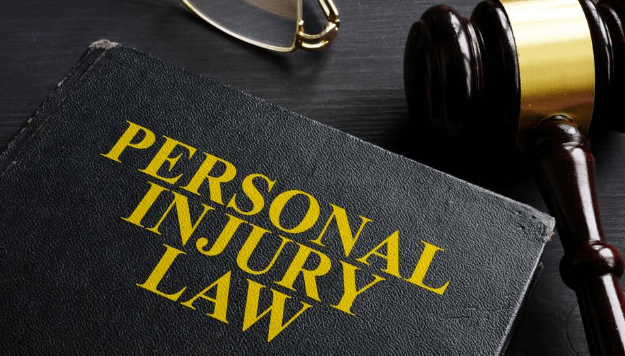6 Instances Where You Can Sue an Entire City for Your Personal Injury

From slip-and-falls on icy sidewalks to collisions with reckless drivers, the potential for serious injuries in a city is vast. When such accidents occur, seeking compensation for medical bills, lost wages, and pain and suffering is a natural course of action.
According to IBISWorld, the personal injury market in the US was worth about $53.1 billion as of 2022. While individuals often think of suing individuals or businesses for personal injury, there are instances where the responsibility falls on the entire city. These cases are typically more intricate, involving negligence or failure to maintain public safety by municipal authorities.
For instance, according to the NHTSA, 31,785 people died in car accidents in the US in the first nine months of 2022. Among them, some died due to the negligence of the city council.
Keep reading to better understand when you may find yourself suing an entire city for your personal injury cases.
1 Poorly Maintained Infrastructure
Cities are responsible for maintaining infrastructure like roads, sidewalks, and public buildings. Negligence in upkeep can lead to hazardous conditions.
For instance, if a pedestrian trips and falls due to a pothole on a poorly maintained sidewalk, the city could be held liable. Similarly, if a bridge collapses due to lack of maintenance, individuals affected may have grounds to sue the city for negligence in infrastructure management.
2 Traffic Management Issues
Traffic accidents are common in urban areas, often exacerbated by poorly designed intersections, malfunctioning traffic signals, or inadequate signage. If an accident occurs due to these issues, the city may be liable.
For example, if a traffic light malfunctions and causes a collision, the affected parties could file a lawsuit against the city for negligence.
3 Failure to Address Known Hazards
Cities have a duty to address known hazards promptly. Failure to do so can result in injuries and legal consequences. Consider the following incident in St. Louis as a case in point.
According to KSDK, a teenager who suffered the loss of her legs in an accident filed a lawsuit against the City of St. Louis. Allegedly, the accident occurred due to another vehicle speeding.
However, the lawsuit asserts that the city’s failure to maintain proper signage at the accident site shares responsibility for the incident. Had the city addressed this issue, this accident could’ve been avoided.
The aforementioned teenager from St. Louis initiated legal action against the city by enlisting the support of a St. Louis personal injury lawyer. These lawyers possess the expertise and resources necessary to substantiate claims of negligence. They are equipped to furnish the lawsuit with requisite evidence and testimonials to bolster its credibility.
TorHoerman Law highlights that individuals pursue injury claims for various reasons, such as seeking reimbursement for medical expenses and pursuing justice. Regardless of the motive, building a compelling case and establishing the city’s negligence is crucial. This is especially important if you are to prove that they failed to address known hazards.
4 Negligence in Public Transportation
Public transportation systems are vital in cities but can pose risks if not properly maintained or operated. Accidents involving buses, trains, or subways can lead to severe injuries.
If an accident occurs due to negligence on the part of the city’s transportation authority, affected individuals may have grounds to sue the city.
5 Inadequate Emergency Services
Cities are responsible for providing adequate emergency services, including police, fire, and medical response. If someone suffers harm due to delayed or inadequate emergency response, the city could be held liable.
For example, if a fire hydrant fails to work during a fire, those affected can sue the city for negligence in maintaining emergency infrastructure.
Read also Fitted Bathrooms: Transforming Spaces for Modern Living
6 Unsafe Public Facilities
Cities maintain various public facilities such as parks, playgrounds, and recreational centers. If injuries occur due to unsafe conditions in these facilities, the city may be liable.
For instance, assume that a child is injured on a playground due to faulty equipment or lack of supervision. Here, the city could be held responsible for failing to ensure the safety of the facility.
Frequently Asked Questions (FAQs)
How do I sue a local government?
Any individual has the right to enlist legal representation and pursue a claim for damages. If you can demonstrate how a government agency has harmed you, the judge in the trial will help you seek compensation for your losses. The eligibility of cases against state and local governments is typically dictated by specific laws in each state, thus varying depending on your jurisdiction.
What is the difference between physical and personal injury?
“Bodily injury” denotes physical harm to the body. “Personal injury” pertains to a legal assertion of harm inflicted upon an individual by another party’s negligence or wrongful actions. While bodily injury can serve as grounds for a personal injury claim, other forms of harm such as reputational damage can also be considered.
What are the damages in a personal injury case?
In personal injury cases, damages generally fall into three main categories – economic, non-economic, and punitive.
Economic damages encompass measurable financial losses, such as medical expenses and lost wages. Non-economic damages pertain to intangible effects like pain and suffering. Punitive damages serve to punish and deter particularly egregious behavior exhibited by the responsible party.
Suing an entire city for personal injury is a complex process that requires gathering evidence, proving negligence, and navigating bureaucratic procedures. It’s essential to seek legal counsel from experienced personal injury attorneys familiar with municipal liability laws.
While holding a city accountable for negligence can be challenging, it’s necessary to ensure public safety and provide compensation for those harmed by negligence.
In conclusion, while cities strive to provide safe environments for their residents, accidents can still occur due to negligence or oversight. In such cases, individuals injured due to the city’s failure to uphold safety standards may have grounds to sue for compensation.







